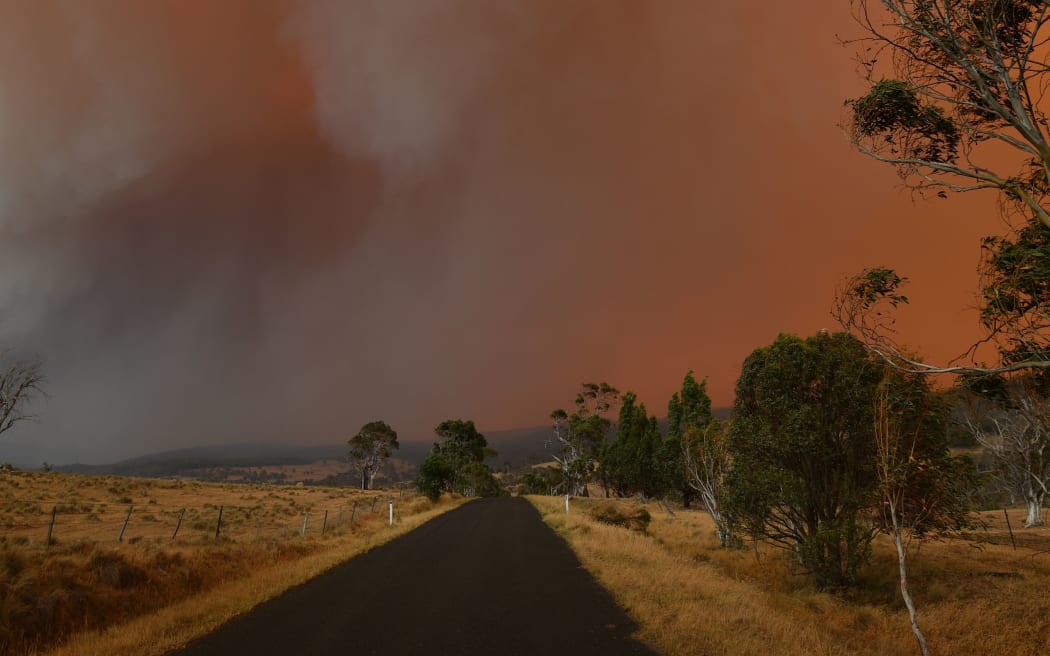Last year was the second-hottest year since records began and extreme weather like the Australian bushfires are more likely in future, the World Meteorological Organization (WMO) says.

Extreme weather like the Australian bushfires which have killed at least 27 people and destroyed several thousand homes this season are more likely in future because of the heat, the WMO says. Photo: AFP
The figures from the Geneva-based WMO crunches several datasets including from NASA and the UK Met Office.
It showed the average global temperature in 2019 was 1.1C above pre-industrial levels, creeping towards a globally agreed limit after which major changes to life on Earth are expected.
"Unfortunately, we expect to see much extreme weather throughout 2020 and the coming decades, fuelled by record levels of heat-trapping greenhouse gases in the atmosphere," WMO Secretary-General Petteri Taalas said.
"Australia had its hottest, driest year on record in 2019, setting the scene for the massive bushfires which were so devastating to people and property, wildlife, ecosystems and the environment," Taalas said.
Scientists say climate change likely contributed to severe weather in 2019 such as a heatwave in Europe and Hurricane Dorian which killed at least 50 people when it barreled through the Bahamas in September.
Governments agreed at the 2015 Paris Accord to cap emissions enough to limit global warming to 1.5 degree Celsius above pre-industrial levels, after which global warming is expected to have extreme consequences that will all but wipe out the world's coral reefs and most Arctic sea ice.
However, the WMO has previously said temperature rises of 3C to 5C could be expected if nothing was done to stop rising emissions, which hit a new record in 2018.
The hottest year on record was in 2016 at 1.2C above pre-industrial levels, the WMO said, due to the warming impact of an El Nino event.
"In the future we easily can expect warmer El Ninos than the previous ones," said WMO scientist Omar Baddour, adding that that would drive temperatures even higher. "We can raise a red flag now."
- Reuters






